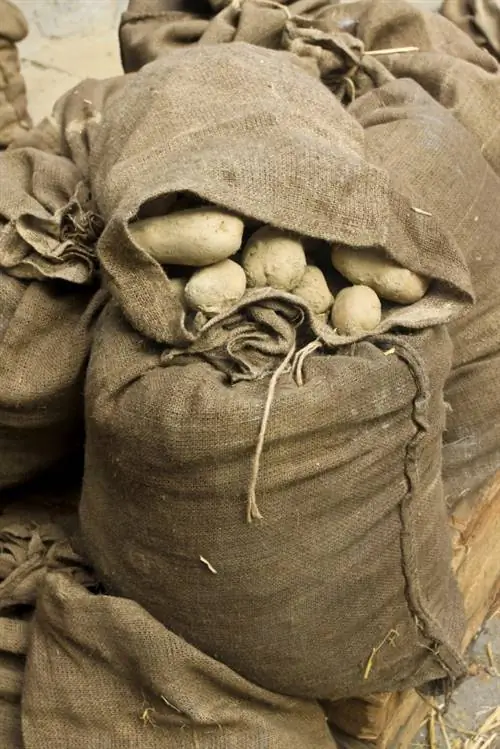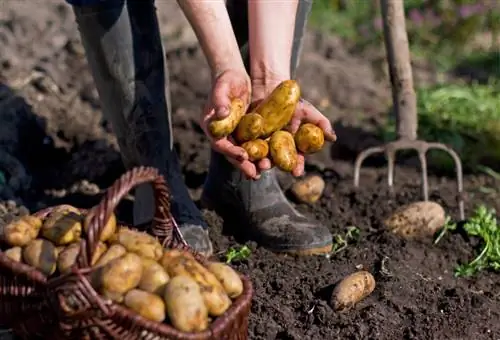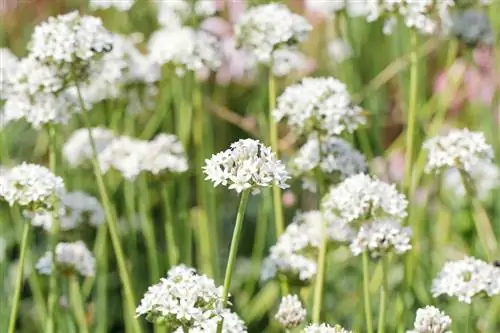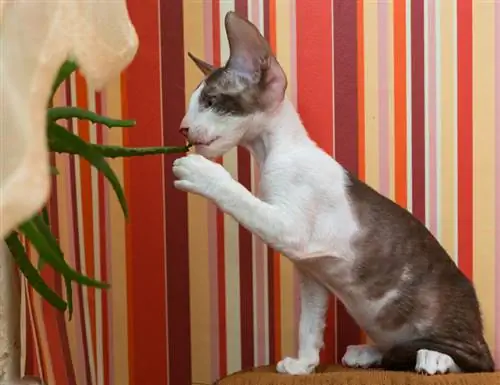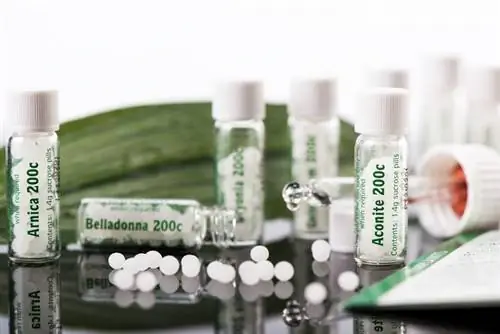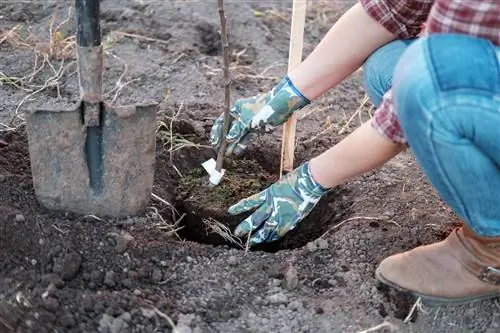- Author admin leonars@hobbygardeners.com.
- Public 2023-12-16 16:46.
- Last modified 2025-01-23 11:19.
Even if raw vegetable salads are he althy and most of the vitamins are hidden under the skin of fruit and vegetables - the potato must be excluded. It is neither edible raw nor with the shell on as toxic alkaloids are hidden here.
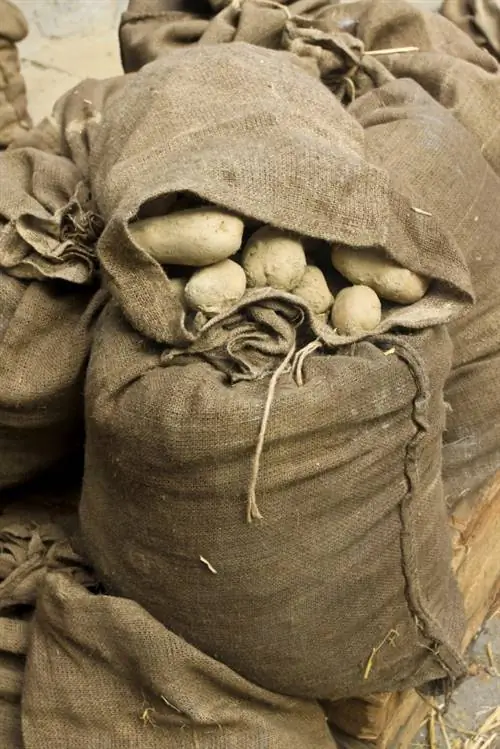
Are raw or green potatoes poisonous?
Are potatoes poisonous? Yes, raw and green potatoes contain the toxic alkaloid solanine, which can lead to symptoms of poisoning. To safely consume potatoes, they should be thoroughly peeled, cooked and never eaten raw. Green and sprouted areas are particularly poisonous and should be removed.
What makes potatoes poisonous?
Like all nightshade plants, the potato contains poisonous alkaloids, in the case of the potato solanine. The natural poison protects the potato from pests, fungi and predators.
But what protects the tuber harms people and animals and can lead to serious symptoms of poisoning. This particularly applies to the consumption of raw and green potatoes.
Poisonous solanine accumulates in the germs and eyes, in green areas and under the shell as well as in all above-ground parts of the plant. Potato berries in particular are very poisonous. The proportion of solanine in the pulp is rather low and is reduced to a harmless level through cooking.
If the potato is peeled and cooked, it is safe to eat. By the way: The solanine makes the potato taste unpleasantly bitter, making eating raw potatoes actually impossible.
Possible symptoms of poisoning
While boiled potatoes are safe, the risk of poisoning increases with the concentration of solanine and the amount of green spots. The darker green the potato, the more poisonous it is. Children are particularly at risk; even small amounts can have a highly toxic effect on them. Possible symptoms of poisoning are:
- Nausea, vomiting, diarrhea
- Itching and burning in the throat
- Kidney inflammation
- Circulation and breathing problems
- Disorders of the central nervous system, cramps, paralysis
The correct handling of potatoes
When storing: Well-stored potatoes contain only a small amount of solanine. The ideal storage location is the cellar, where the potatoes can be stored in a dry, cool and dark place. Heat and light would encourage the formation of germs and thus solanine.
When peeling: Potatoes must be peeled thoroughly. Carefully cut away any germinated or green areas. It is better to throw away potatoes with several green spots.
When cooking: During cooking, some of the solanine is transferred to the cooking water. It is therefore better to pour away the cooking water, especially with jacket potatoes.
While eating:
- Potatoes only cooked, never eat raw
- do not eat potato peelings, not even the jacket potatoes
Tips & Tricks
If you don't want to go without your beloved jacket potatoes, you can use early potatoes. Their thin shell stores less solanine. Jacket potatoes still need to be peeled after cooking.

